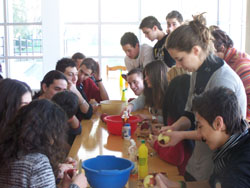MINISTRY
OF EDUCATION, LIFELONG LEARNING
AND RELIGIOUS AFFAIRS
NATIONAL YOUTH FOUNDATION
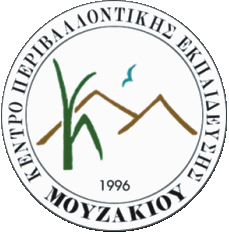
CENTRE
OF ENVIRONMENTAL
EDUCATION
OF MOUZAKI
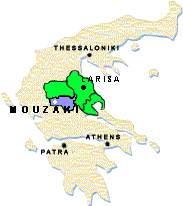
1 ITHOMIS STR.-
MOUZAKI - A.C. 43060
Tel. 0030 - 2445 - 043242
Fax: 0030 - 2445 - 043363
E-mail:
kpekardi@sch.gr
URL: http://www.kpem.gr
http://kpe-kardits.kar.sch.gr
Mouzaki
The beautiful town of Mouzaki is located in the South west end of the
Thessalian plain, exactly where the river Pamisos comes out through the
wilderness of the mount Pindos, leaving behind on its left and right the
green slopes of mount Agrafa and Argithea region.
Its historical background is relatively recent, but in its proximity there
are the remnants of two great towns: The ancient Gomfi and the Byzantine
Episkopi.
It is 26 km far from Karditsa where it belongs administratively and 19
km from Trikala.
It is the head of the homonymous municipality which consists of the municipal
districts of Amigdali, Anthohori, Vatsounia, Gelanthi, Drakotripa, Hellinokastro,
Kriopigi, Lazarina, Magoulitsa, Mavromati, Oxia, Pefkofito and Porti.
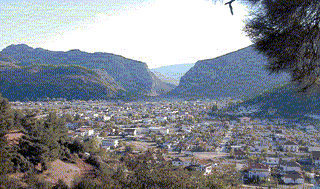
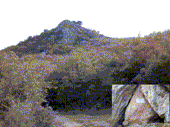
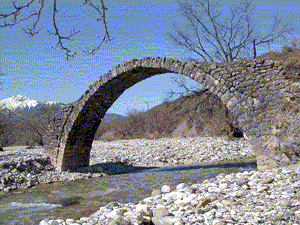
The whole area, both the highlands and the lowlands has a lot of environmental and historical interests, a rich and popular civilisation and a lot of intellectual activity.
The area gains more environmental interest from the outstanding artificial Lake of N. Plastiras and her dam.
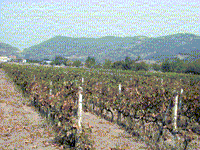
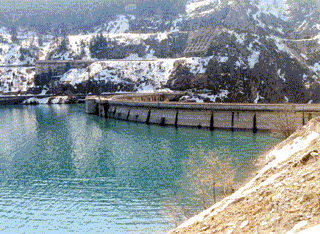
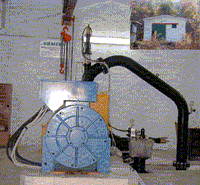
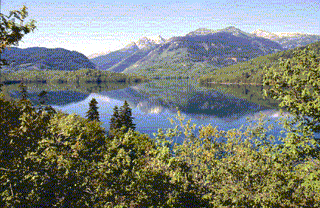
The C.E.E.M. is regional. It was established after a resolution of the Ministry of Education, L.L.R.A. it is co-subsidized by the C.S.F. (Community Structural Funds) of European Union and began operating in January 1996. It is housed in the building of the Centre of Students which belongs to the National Youth Foundation.
It is visited by students of primary and secondary education of schools from all around Greece. The tutoring team of the C.E.E.M. consists of nine teachers, also, of primary and secondary education.
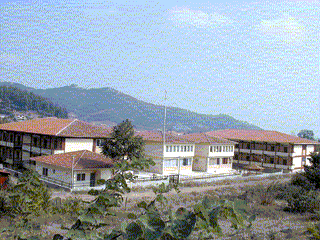
Hall of multiple uses
Halls for workshops
Laboratory of Chemistry - Biology
Hall of artistic activity
Library
Offices
Restaurant
Hostel rooms
Volleyball - Basketball courts
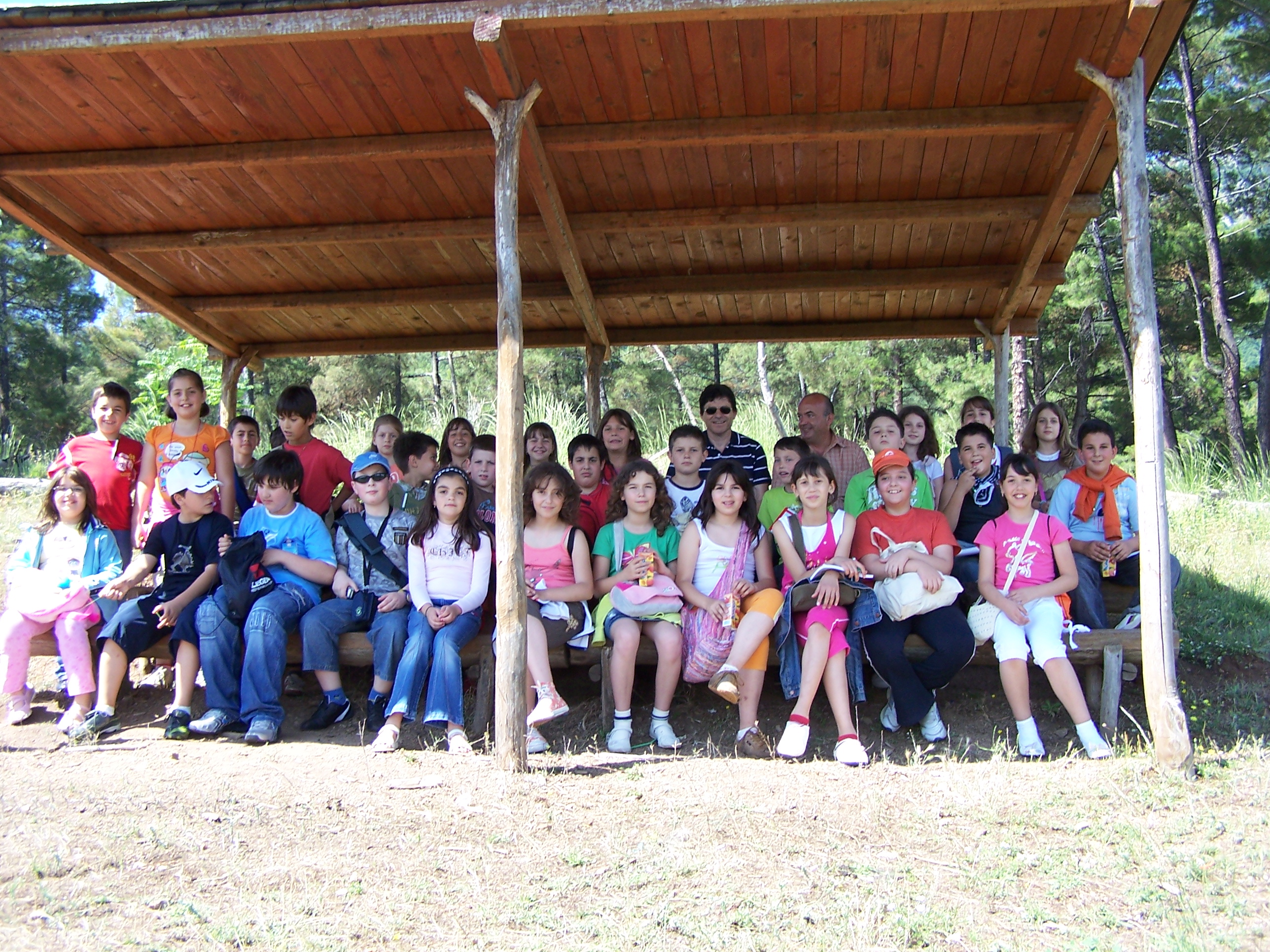

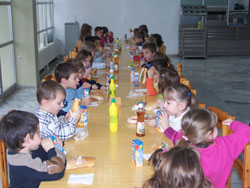
Projects
- Activities
The thematic units of the projects that are carried out by the pedagogical
team of C.E.E.M. are:
“…some water”
“Energy”
“The forest”
“Agriculture and Environment”
“Nutrition and Environment”
“Regional wetlands”
“Recycling”
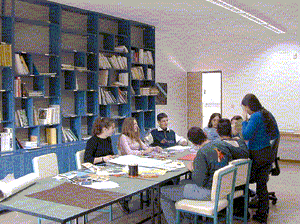
Computers
Small installed photoboltaic system for educational purposes
Overhead projectors
Video projector, camera recorder, VCR and TVs, stereo-scopes, microscopes
Portable equipment for water analysing
Weather station
Anoraks and backpacks
Mountain bikes
Off road vehicle

The C.E.E.M. aims at informing, sensitization and activation of young people and in general of all citizens through various activities which are integrated in educational projects:
- So that people can contribute to the reduction of negative human attitude towards the environment and reverse its bad condition.
- Participate in the formation of better living conditions.
- Help to the endless management of the natural resources, to the protection of the ecosystems of their region, as well as to the creation of conditions of sustainable development.
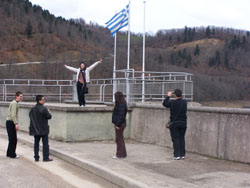
It plans and carries out projects of environmental education which last one, two or three days for students of primary and secondary education.
It organises informative and educational meetings for teachers and other social groups, as well as various congresses.
It co-ordinates the theme networks of Environmental Education «The forest» and «Energy in the Child's Environment» and participates in theme networks of other Environmental Centres.
It supports projects of Environmental Education of the schools of its geographical range in co-operation with the people in charge of the Environmental Education of its districts.
It co-operates with the Local Councils, Educational Institutions and Networks of Environmental Education in a national and international level.
It co-operates with Regional Administration - Local Government and organises seminars and meetings in order to promote the sustainable development.
It utilizes the potential of the Word Wide Web.
It creates a data archive and produces educational material (CDs, books, magazines, photos etc).
